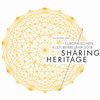European Music Trails
Where Everything Started: Europe in Leipzig - From Leipzig to Europe
Leipzig as a point of intersection
Leipzig's history has been decisively shaped by its role as a European trading centre. Located at the intersection of the important European trade routes Via Regia – running east-west from Russia to the Atlantic – and Via Imperii – running north-south from the Baltic to the Mediterranean – the city acted as a magnet for people and goods from all over Europe. This created not only a European trading hub for goods, but also a trans-shipment centre for ideas and culture.
Leipzig as a musical centre of attraction and a source of inspiration in Europe
In contrast to the residential cities, where the noble courts defined the cultural live, the citizens of Leipzig shaped the cultural development of the city themselves. As in only a few cities, music served and still serves in Leipzig as a medium of mediation and identity for the city's society.
For centuries, Leipzig has therefore been a centre of attraction and radiation for musicians and musical institutions, benefiting from cultural exchange in Europe and at the same time promoting it. Without this musical exchange with Europe, Leipzig as a city of music would not exist.
Connecting factors for European activities
With the project "European Music Trails" this Leipzig tradition of musical sharing radiates into Europe. In the history of Leipzig as a city of music, there are numerous connecting factors for European activities, such as:
- Students of the Leipzig Conservatory came from all over Europe and subsequently influenced the development of music in their own countries.
- Leipzig composers (Mendelssohn, Clara Schumann, Wagner and Grieg etc.) undertook extensive concert tours throughout Europe.
- Leipzig's musical institutions (music publishers, Gewandhaus, Conservatory, St. Thomas Boys Choir) radiate out to Europe through the export of sheet music, guest appearances and master classes.
- A mutual musical exchange of Leipzig composers with colleagues throughout Europe (e.g., influence of Italian and French composers on Bach) is/was taking place.
Objectives of the project "European Music Trails”
A lived cultural heritage can convey values that are important for our coexistence in Europe. Through music we have always spoken a common language. The project "European Music Trails" focuses on the unifying power of music in Europe. It conveys that national cultural values, on the one hand, strengthen identification with the community and promote the assumption of responsibility. On the other hand, they are valuable assets for intercultural exchange and connect people.
The relationship between national identity and common European values and the question of citizen participation in social processes are intensively discussed in all European countries. This theme is reflected in all project activities.
The core idea of the project is a mutual artistic exchange with changing partner countries as well as the development of new interested parties for the European cultural heritage represented by Leipzig pars pro toto. An important characteristic of the project is the active participation of citizens of the partnering countries as multipliers of the common cultural heritage. Based on the music historical background, the partner institutions from three countries develop a series of activities focusing on audience diversification as well as transnational mobility.
European Year of Cultural Heritage 2018
To emphasize the importance of culture for a common Europe, the EU has declared 2018 to be the European Year of Cultural Heritage. The project "European Music Trails" was one of the projects selected by Minister of State for Culture Ms Grütters with which Germany presented itself.
The project kicked off with an exhibition entitled "European Music Trails". The German-English exhibition was first shown in November 2017 in Leipzig's New City Hall and was on display in an expanded form in the Promenaden Hauptbahnhof Leipzig in March and April 2018. In November 2018, it was presented at "denkmal - Europe's Leading Trade Fair for Conservation, Restoration and Old Building Renovation", and from October 8th to 17th, 2019, it was shown in Brussels (supplemented by an exhibition brochure in French) at the Royal Museum of Art and History.
Festival European Music Trails – Building Bridges
In 2018, the four-day festival "European Music Trails – Building Bridges" was implemented for the first time. The core of the festival, which takes place in November from the Day of Prayer and Repentance on Wednesday to the Notenspur Night of Playing Music at Home on the following Saturday, are guest performances and the exchange of young musicians at the transition to professional careers from all over Europe as well as their encounter with Leipzig citizens. The musicians are selected and invited with the help of a selection process via European music academies, Leipzig's partner cities or also other international project partners of European Music Trails. In addition to a joint commemorative concert on the Day of Prayer and Repentance at a site steeped in history, the young musicians play concerts during the week at Leipzig's music heritage sites of the European Cultural Heritage Label and visit school classes during lessons. At the end of the festival, they all take part in the Notenspur Night of Playing Music at Home, where they play in private homes or studios, offices or stores, thus entering into an intense exchange with the citizens of Leipzig. In 2020 and 2021, the festival could not take place due to the coronavirus pandemic. The next "Building Bridges" is scheduled for November 2022.
The project was supported by the Federal Commissioner for Culture and the Media (BKM) in 2017–2019 as part of the European Year of Cultural Heritage 2018.
2017–2019 and 2022 supported by the Cultural Foundation of the Free State of Saxony. This measure is co-financed by tax funds on the basis of the budget passed by the members of the Saxon State Parliament.
2018–2020 and 2022–2024 supported by the Creative Europe program of the European Union.












